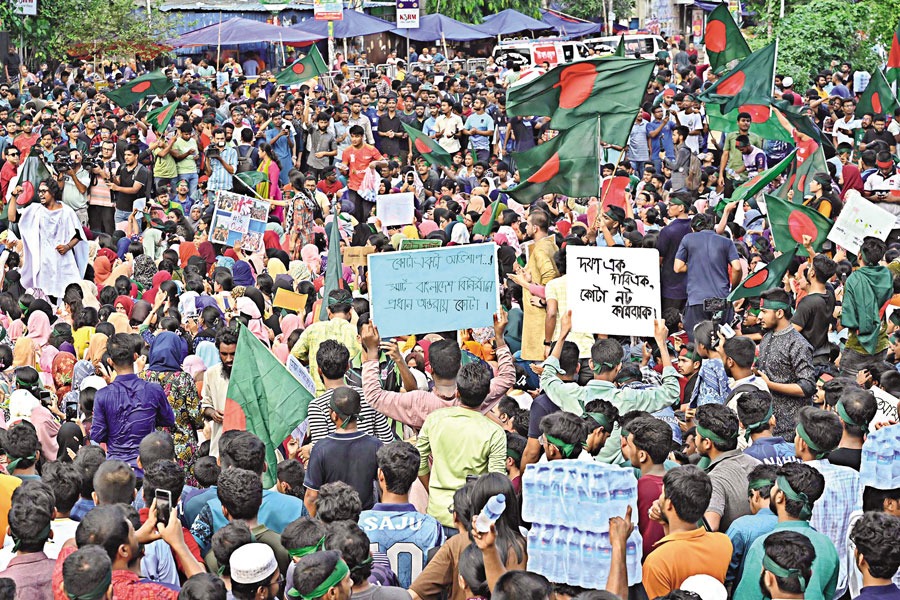
Published :
Updated :

A nation that won independence in 1971 waging a nine-month long bloody war against an occupation army, celebrates the first anniversary of another landmark event called the July mass uprising today (Tuesday). Bangladesh has witnessed many ups and downs since its emergence, but the July uprising, because of its scale and sacrifices made, is considered an unparalleled one. Students and people from all walks of life forced one of the worst authoritarian regimes of the country to fall and its head, Sheikh Hasina, flee to neighbouring India on August 05 last year.
In fact, July mass uprising was the explosion of a series of events marking political, social and economic discontent. These were suppressed by the Hasina regime in most cases brutally terming it anti-liberation conspiracy. Though she came to power in 2009, thanks to popular vote, in the years that followed she grossly undermined the democratic process by making national elections a mockery. She resorted to election engineering to ensure majority seats for her party, Bangladesh Awami League (BAL), in the parliament to stay in power forever. Manipulating the judiciary, her government nullified the constitutional obligation to hold national election under the caretaker government. Bangladesh Nationalist Party (BNP), the main opposition party, faced relentless persecution. Hasina government introduced repressive acts and increased surveillance on the people thereby curbing freedom of speech and marginalising the media.
Though the country witnessed a robust economic growth in the 15 years of Hasina regime, it was unable to attract a significant amount of foreign direct investment (FDI) and diversify export. Over-ambitious mega infrastructure projects became a way of misappropriating pubhlic funds by party loyalists and powerful quarters. The much-hyped development narrative was hollow and unattainable. The Hasina-run administration was basically a kleptocracy, a form of government by individuals who primarily seek personal gain at the expense of those they govern. The tyrant also politicised almost all national institutions and rendered those dysfunctional. She got unconditional support from India and used it to perpetuate her hold on power. Hasina also allowed her party's student wing, Bangladesh Chhatra League (BCL), which has been banned recently, to unleash a reign of terror in all the educational institutions of the country. Torture, intimidation, physical assault and killing by the BCL leaders and activists became a common practice under the shelter of law-enforcing agencies. It was designed to suppress any protest or movement by the ordinary students and youths.
Nevertheless, it is the students and youths who dared to challenge the authoritarian regime. The movement demanding reforms of discriminatory quota system in public jobs in 2013 and 2018 had unnerved the Hasina regime. The law enforcing agencies and the goons of BCL descended on the street protestors with brute force. Also, in 2018, students held street demonstrations demanding road safety across the country which was also brutally suppressed. But the flame of rebellion was alive and street violence erupted again in the form of protest against the resumption of the discriminatory quota system in the public service. Soon the street demonstrations turned into a mass movement demanding that Hasina must step down. Her brutal repressive steps to crush the movement led to the deaths of at least 1,400 people and injuries to more than 20,000 during the final days of July-August.
Thus, Bangladesh witnessed a new morning stained with blood, tears and horrors, but with new hopes for a better future and a society that will be inclusive and free from injustice and discrimination. As the country celebrates the first anniversary of the mass uprising, its key message must be remembered and the spirit must be upheld by all. Now is the time to work together and carry out reforms of key national institutions and begin the onward journey for democracy and a just society.


 For all latest news, follow The Financial Express Google News channel.
For all latest news, follow The Financial Express Google News channel.